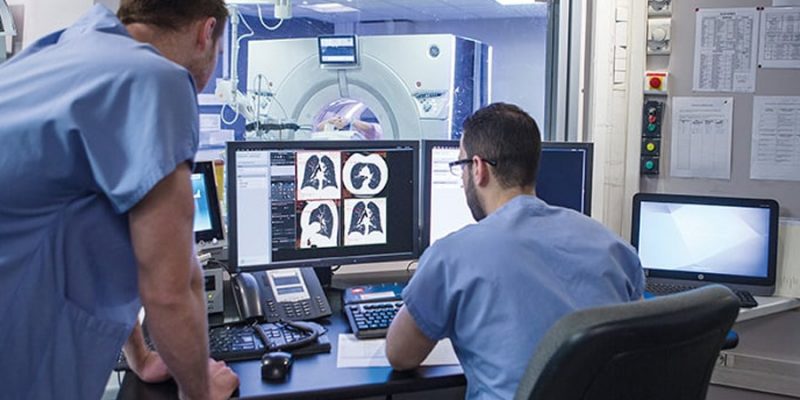
AI-Powered Prediction: Revolutionizing Medical DiagnosticsAI-Powered Prediction: Revolutionizing Medical Diagnostics Artificial intelligence (AI) is transforming the healthcare industry, enabling machines to learn from vast amounts of data and make predictions that can improve patient outcomes. In the realm of medical diagnostics, AI-powered prediction is revolutionizing the way diseases are detected and managed. Early Disease Detection: AI algorithms can analyze complex medical data to identify patterns and abnormalities that may indicate the presence of disease at an early stage. By leveraging machine learning techniques, AI systems can learn from patient records, imaging results, and genetic data to predict the risk of developing diseases such as cancer, heart disease, and diabetes. This early detection allows for timely intervention and treatment, improving the chances of successful outcomes. Personalized Diagnosis: AI algorithms can also personalize diagnostic procedures by taking into account individual patient characteristics, such as age, lifestyle, and family history. By analyzing patient-specific data, AI systems can tailor diagnostic tests and recommend treatments that are most appropriate for their unique needs. This personalized approach enhances the accuracy and effectiveness of medical diagnostics. Remote Diagnostics: AI-powered prediction enables remote diagnostics, providing access to specialized medical expertise even in underserved areas. AI algorithms can analyze patient data collected through telemedicine platforms or wearable devices to identify potential health concerns and provide initial diagnoses. This remote monitoring and diagnostics allow patients to receive timely care without the need for in-person visits, expanding healthcare accessibility. Predictive Analytics: AI systems can predict the progression of diseases based on historical data and patient-specific factors. By identifying potential complications and predicting disease trajectories, AI algorithms can help clinicians develop personalized treatment plans and interventions to mitigate future health risks. This predictive analytics capability enhances the effectiveness of disease management and improves patient outcomes. Improved Diagnosis Accuracy: AI-powered diagnostic systems can process vast amounts of data and identify patterns that are difficult for human clinicians to detect. By leveraging deep learning algorithms, AI systems can analyze medical images, such as MRI scans and X-rays, with greater precision and accuracy. This enhanced diagnostic accuracy leads to earlier detection of diseases and more effective treatment decisions. Conclusion: AI-powered prediction is revolutionizing medical diagnostics by enabling early disease detection, personalized diagnosis, remote diagnostics, predictive analytics, and improved diagnostic accuracy. As AI algorithms continue to learn from vast amounts of data, the potential applications in medical diagnostics will continue to expand, transforming the way diseases are identified, managed, and treated, ultimately improving patient outcomes and the overall quality of healthcare.
Posted inNews